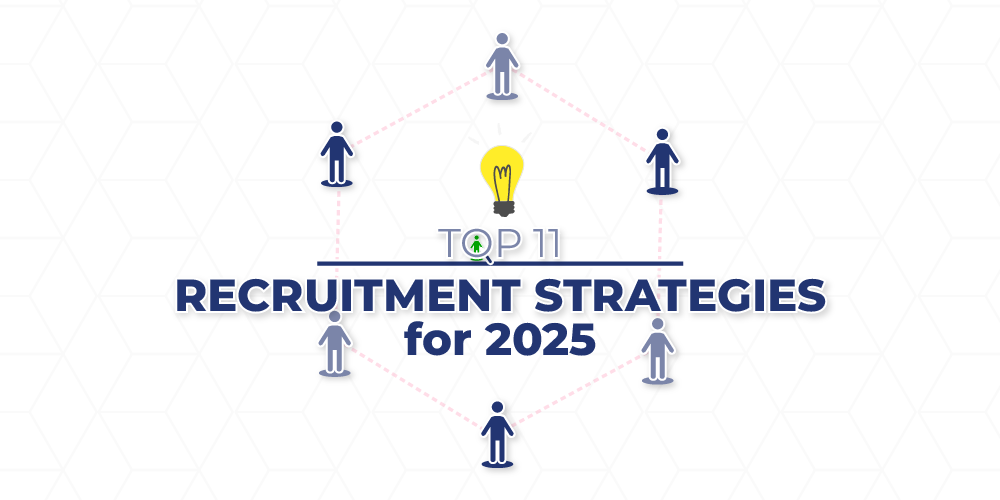Ensuring Statutory Compliance in HR for Manufacturing Industry

In the rapidly evolving & growing manufacturing sector, ensuring HR compliance in India is not only about following the laws—it’s also very important for sustainable business growth. Manufacturing companies must skillfully navigate a maze of labour laws in India and regulations designed to protect workers’ rights and ensure fair employment practices. Some of the key Labour laws & HR policies in India include the Factories Act, Minimum Wages Act, Payment of Bonus Act, and the Employees’ Provident Fund and Miscellaneous Provisions Act. Ensuring HR compliance in manufacturing can be a complex task, but staffing firms are vital partners in navigating these laws.
The manufacturing industry in India is growing, driven by government initiatives like the Production-Linked Incentive (PLI) schemes. According to the India Decoding Jobs Report 2024, manufacturing sector contributes to 17% to the Indian economy and employs around 35.6 million people and expected to grow 15% year-on-year increase in hiring, highlighting the sector’s expanding workforce needs.
Understanding the Legal Landscape with Labour Laws in India
India has a complex compliance system with around 1536 Acts, 69,233 compliances, and 6618 annual filings. The challenge for HR heads in manufacturing is ensuring statutory compliance in HR across diverse regulations that evolve frequently. The manufacturing industry also faces a multitude of HR compliances in India that companies must adhere to. Labour laws in India are designed to protect workers’ rights and ensure fair treatment. Key legislations include:
The Factories Act, 1948 mandates health, safety, and welfare measures for workers. It includes provisions for working hours, overtime, and leave entitlements.
The Payment of Wages Act, 1936: Ensures timely payment of wages without unauthorised deductions, aiming to prevent wage delays and arbitrary deductions by employers.
The Minimum Wages Act, 1948: Mandates the payment of minimum wages to workers in certain employments to prevent exploitation and ensure a basic standard of living.
The Equal Remuneration Act, 1976: Prohibits gender-based wage discrimination, ensuring equal pay for men and women for the same or similar work.
The Maternity Benefits Act, 1961: Provides maternity benefits to women employees, including paid leave during maternity and job protection during the leave period.
Employees’ PF and Miscellaneous Provisions Act, 1952: Establishes a provident fund, pension fund, and deposit-linked insurance fund for employees, providing financial security post-retirement.
Employees State Insurance Act, 1948: Offers social security benefits like medical care, sickness benefits, maternity benefits, and compensation for work-related injuries.
The Employee’s Compensation Act, 1923: Provides financial compensation to employees or their dependents in case of accidental injury or death during employment.
Industrial Employment (Standing Orders) Act, 1946: Requires employers to formally define and communicate employment conditions, including working hours, leave procedures, and disciplinary actions.
The Payment of Bonus Act, 1965: Ensures that employees receive bonuses based on the company’s profits and productivity, promoting fair distribution of earnings.
Ease of Doing Business
With many compliances that a business has to follow, India is significantly improving its ease of doing business through several key measures. The Business Reforms Action Plan (BRAP) 2024 is streamlining regulatory frameworks and integrated online services. Efforts to reduce compliance burdens and decriminalise business laws are creating a more business-friendly environment. Additionally, substantial infrastructure investments and expanded Production Linked Incentive (PLI) schemes are bolstering domestic production and attracting foreign investments. The government’s push for digital solutions and ICT adoption has further enhanced efficiency and streamlined processes.
Building a Compliance-First Culture with Staffing Firms
Labour laws in India can change rapidly, and staying updated is the need of the hour. To keep up with India’s ever-changing labor laws, HR heads in manufacturing can partner with staffing firms that specialize in HR compliance management, as they have dedicated teams that keep track of legal shifts, helping businesses adapt seamlessly. These firms help ease the pressure of staying updated with legal changes, ensuring that your business is following all the statutory compliance in HR without constant effort on your part. Staffing companies also emphasises the importance of HR compliance from the top down.
Beyond just managing compliance & HR policies in India, staffing firms also play a key role in educating and training the workforce on the latest legal requirements. This helps ensure everyone, from management to employees, knows and follows legal guidelines. In short, working with these firms allows you to stay compliant while focusing on running your business smoothly.
Staffing companies also leverage advanced technology, like payroll systems and HR software, to track hours, wages, and HR compliance with labour laws. These systems are crucial in maintaining accurate records and avoiding issues like overtime errors, pay discrepancies, or missed benefits.
Additionally, staffing firms conduct regular compliance audits to ensure that the business aligns with legal standards. These audits help HR managers spot any gaps in compliance early, preventing costly penalties or legal complications down the line. By partnering with staffing companies, you can ensure the business remains on track without worrying about legal issues.
Final Thoughts: Fostering Compliance for Growth and Fairness
Ensuring HR compliance in India’s manufacturing sector is a cornerstone of ethical and sustainable business growth. As the manufacturing industry continues to grow & expand, staffing firms in India can help compliance issues in manufacturing Industry by making them to stay compliant, streamline operations, and foster a positive work environment for their employees.
By building a culture of compliance supported by robust systems, advanced technology, and regular audits, businesses can not only meet legal standards but also boost employee trust and satisfaction.
At TeamLease, we specialise in helping businesses meet compliance seamlessly. TeamLease successfully completed the HR compliance audit and received the Certification of Appreciation from Skoda for Best Statutory Compliance Performance Awards 2024.
Contact us today to explore how we can support your growth as well.
Latest Blogs
Apprenticeship Programs vs Internship: Understanding the Difference
As India sharpens its focus on employability, workforce formalization, and industry-aligned skilling, the conversation around apprenticeship programs vs. internship has become increasingly important. For employers,...
Read MoreApprenticeship India: A Guide to NAPS, NATS & Compliance
As India strengthens its workforce strategy, apprenticeship initiatives in India are gaining renewed relevance for employers across sectors. With skill gaps widening and compliance requirements...
Read MoreHow Apprenticeships in India Help Build Job-Ready Talent?
In a fast-evolving job market, businesses across India face a common challenge: finding candidates who are not just qualified on paper but ready to perform...
Read MoreStrategic Workforce Planning in India: Why Smart Talent Strategy is Important?
For years, strategic workforce planning in India was treated as a back-office exercise—something to be revisited when hiring pressure built up or attrition spiked. That...
Read MoreUnion Budget 2026–27 Decoded: What MSMEs and HR Leaders Need to Know
The Union Budget 2026-27, presented on 1 February 2026, signals a deliberate shift toward employment-centric growth, combining sectoral demand creation with long-term investments in skills,...
Read More





